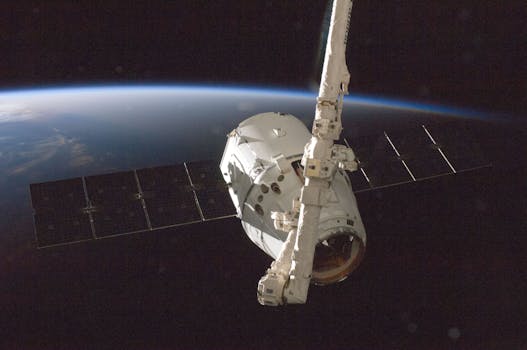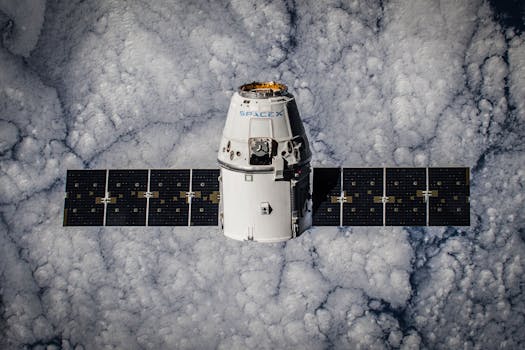
The Future of Satellites: Revolutionizing Global Communication and Exploration. The future of satellites is a rapidly evolving field, with new technologies and innovations emerging regularly. Satellites have been a crucial part of our daily lives, providing us with navigation, communication, and weather forecasting, among other services. As we look to the future, it is clear that satellites will play an even more significant role in shaping our world.
Satellite technology has come a long way since the launch of the first artificial satellite, Sputnik, in 1957. Today, there are thousands of satellites orbiting the Earth, providing a wide range of services, including communication, navigation, and remote sensing. The future of satellites is expected to be shaped by advancements in technology, new applications, and changing user needs.
One of the key drivers of the future of satellites is the development of new technologies, such as satellite constellations, reusable rockets, and advanced propulsion systems. Satellite constellations, such as those being developed by SpaceX and Amazon, will provide global coverage and high-speed internet connectivity, enabling new applications and services. Reusable rockets, such as those developed by SpaceX and Blue Origin, will reduce the cost of access to space, making it more affordable to launch satellites and other spacecraft.
Another significant trend shaping the future of satellites is the growth of the small satellite market. Small satellites, also known as cubesats, are smaller, lighter, and less expensive than traditional satellites. They are being used for a wide range of applications, including Earth observation, communication, and scientific research. The small satellite market is expected to continue to grow, driven by the increasing demand for affordable and flexible access to space.
The future of satellites will also be shaped by changing user needs and new applications. For example, the growing demand for high-speed internet connectivity and the increasing use of satellite-based services, such as navigation and remote sensing, will drive the development of new satellite systems and technologies. Additionally, the use of satellites for scientific research, such as studying the Earth’s climate and the universe, will continue to play an important role in shaping our understanding of the world and the universe.
In conclusion, the future of satellites is a rapidly evolving field, driven by advancements in technology, new applications, and changing user needs. As we look to the future, it is clear that satellites will play an even more significant role in shaping our world, providing new services and applications that will transform the way we live and work.
The impact of satellites on society will be significant, with new opportunities emerging for economic growth, social development, and environmental sustainability. For example, satellite-based services, such as navigation and remote sensing, will enable new applications and services, such as precision agriculture and disaster response. Additionally, the use of satellites for scientific research will continue to play an important role in shaping our understanding of the world and the universe.
However, the future of satellites also poses significant challenges, such as the risk of collisions and the growing problem of space debris. As the number of satellites in orbit increases, the risk of collisions and the amount of space debris will also grow, posing a significant threat to the safety and sustainability of space operations. To address these challenges, it will be necessary to develop new technologies and strategies for managing space debris and preventing collisions.
Furthermore, the future of satellites will be shaped by regulatory and policy frameworks, which will play a crucial role in governing the use of space and ensuring the long-term sustainability of space operations. Governments and international organizations will need to work together to develop and implement effective regulatory and policy frameworks, which will balance the need for economic growth and social development with the need to protect the environment and ensure the safety and security of space operations.
In the coming years, we can expect to see significant advancements in satellite technology, with new applications and services emerging regularly. For example, the development of satellite-based quantum communication systems will enable secure and reliable communication over long distances, while the use of satellites for Earth observation will provide new insights into the Earth’s climate and the environment.
The use of satellites for space exploration will also continue to play an important role in shaping our understanding of the universe. For example, the use of satellites to study the Earth’s magnetic field and the solar wind will provide new insights into the Earth’s climate and the space environment, while the use of satellites to study the universe will continue to reveal new secrets about the cosmos.
In conclusion, the future of satellites is a rapidly evolving field, driven by advancements in technology, new applications, and changing user needs. As we look to the future, it is clear that satellites will play an even more significant role in shaping our world, providing new services and applications that will transform the way we live and work.
As the satellite industry continues to grow and evolve, it will be necessary to address the challenges and opportunities posed by this growth. This will require the development of new technologies and strategies for managing space debris and preventing collisions, as well as the implementation of effective regulatory and policy frameworks to govern the use of space.
The future of satellites is a complex and multifaceted field, with many different trends and drivers shaping its development. However, one thing is clear: the future of satellites will be shaped by the interplay between technological, economic, social, and environmental factors, and will require a coordinated and sustained effort to ensure the long-term sustainability of space operations.
The growth of the satellite industry will also have significant economic and social impacts, with new opportunities emerging for economic growth, social development, and environmental sustainability. For example, the use of satellites for precision agriculture will enable farmers to optimize crop yields and reduce waste, while the use of satellites for disaster response will enable emergency responders to respond more quickly and effectively to natural disasters.
In addition, the use of satellites for environmental monitoring will provide new insights into the Earth’s climate and the environment, enabling policymakers and stakeholders to make more informed decisions about how to mitigate the impacts of climate change and protect the environment.
Overall, the future of satellites is a rapidly evolving field, with many different trends and drivers shaping its development. As we look to the future, it is clear that satellites will play an even more significant role in shaping our world, providing new services and applications that will transform the way we live and work.
The future of satellites will be shaped by the interplay between technological, economic, social, and environmental factors, and will require a coordinated and sustained effort to ensure the long-term sustainability of space operations. As the satellite industry continues to grow and evolve, it will be necessary to address the challenges and opportunities posed by this growth, and to develop new technologies and strategies for managing space debris and preventing collisions.
In conclusion, the future of satellites is a complex and multifaceted field, with many different trends and drivers shaping its development. However, one thing is clear: the future of satellites will be shaped by the interplay between technological, economic, social, and environmental factors, and will require a coordinated and sustained effort to ensure the long-term sustainability of space operations.
The use of satellites for space exploration will also continue to play an important role in shaping our understanding of the universe. For example, the use of satellites to study the Earth’s magnetic field and the solar wind will provide new insights into the Earth’s climate and the space environment, while the use of satellites to study the universe will continue to reveal new secrets about the cosmos.
The future of satellites will also be shaped by the development of new technologies, such as satellite constellations and reusable rockets. Satellite constellations will provide global coverage and high-speed internet connectivity, enabling new applications and services. Reusable rockets will reduce the cost of access to space, making it more affordable to launch satellites and other spacecraft.
Furthermore, the future of satellites will be shaped by the growth of the small satellite market. Small satellites are smaller, lighter, and less expensive than traditional satellites, and are being used for a wide range of applications, including Earth observation, communication, and scientific research. The small satellite market is expected to continue to grow, driven by the increasing demand for affordable and flexible access to space.
In conclusion, the future of satellites is a rapidly evolving field, driven by advancements in technology, new applications, and changing user needs. As we look to the future, it is clear that satellites will play an even more significant role in shaping our world, providing new services and applications that will transform the way we live and work.
Conclusion
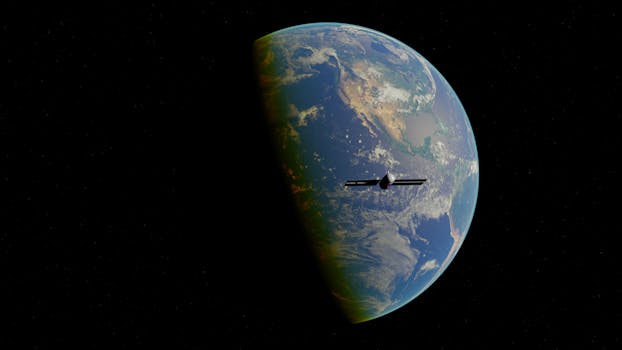
The future of satellites is a complex and multifaceted field, with many different trends and drivers shaping its development. However, one thing is clear: the future of satellites will be shaped by the interplay between technological, economic, social, and environmental factors, and will require a coordinated and sustained effort to ensure the long-term sustainability of space operations.
Recommendations
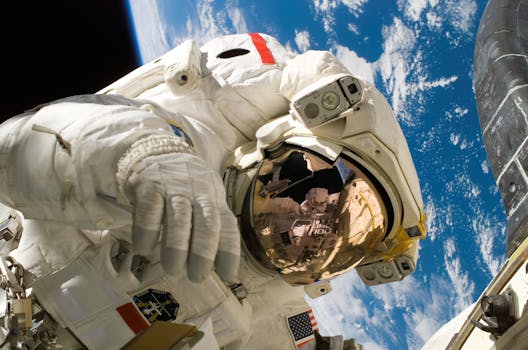
To ensure the long-term sustainability of space operations, it will be necessary to develop new technologies and strategies for managing space debris and preventing collisions. This will require a coordinated and sustained effort from governments, industry, and other stakeholders.
Future Outlook
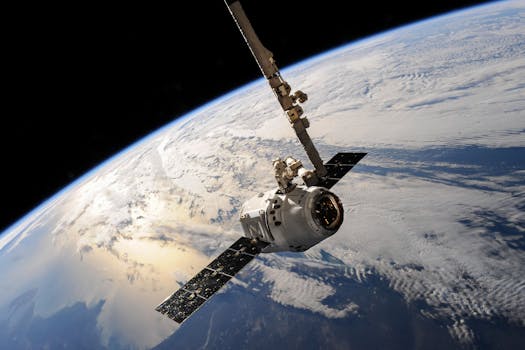
The future of satellites is expected to be shaped by the development of new technologies, such as satellite constellations and reusable rockets. The growth of the small satellite market is also expected to continue, driven by the increasing demand for affordable and flexible access to space.
See more:
